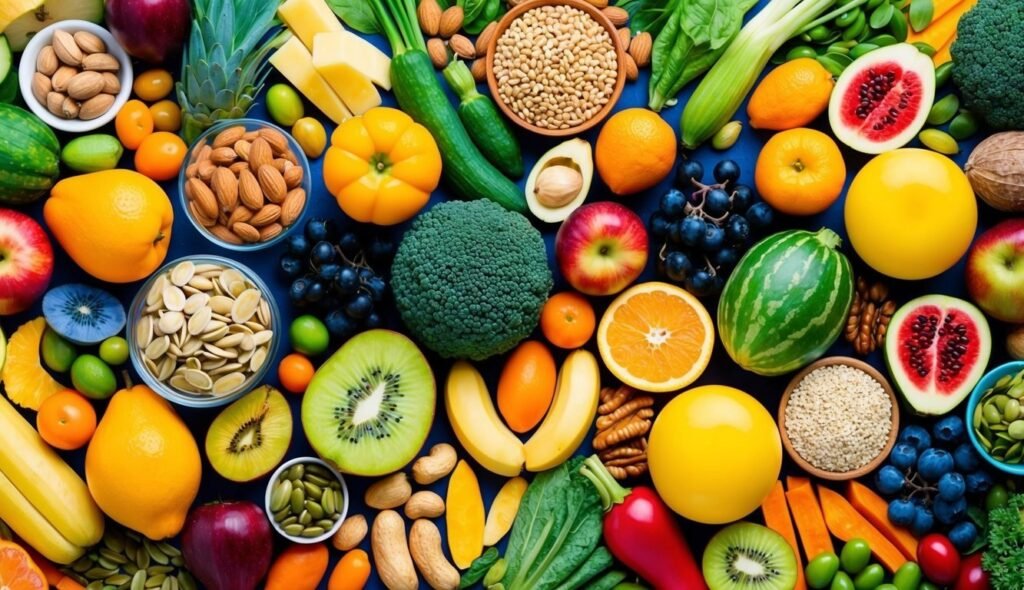As I explore ways to maintain youthful skin, I’ve found that collagen production and skin elasticity play crucial roles in keeping our complexion looking vibrant.
I’ve found that collagen production and skin elasticity play crucial roles in keeping our complexion looking vibrant. Finding effective methods to enhance these factors can lead to healthier, more resilient skin.
From dietary changes to topical treatments, there are plenty of strategies that can help us look and feel our best.
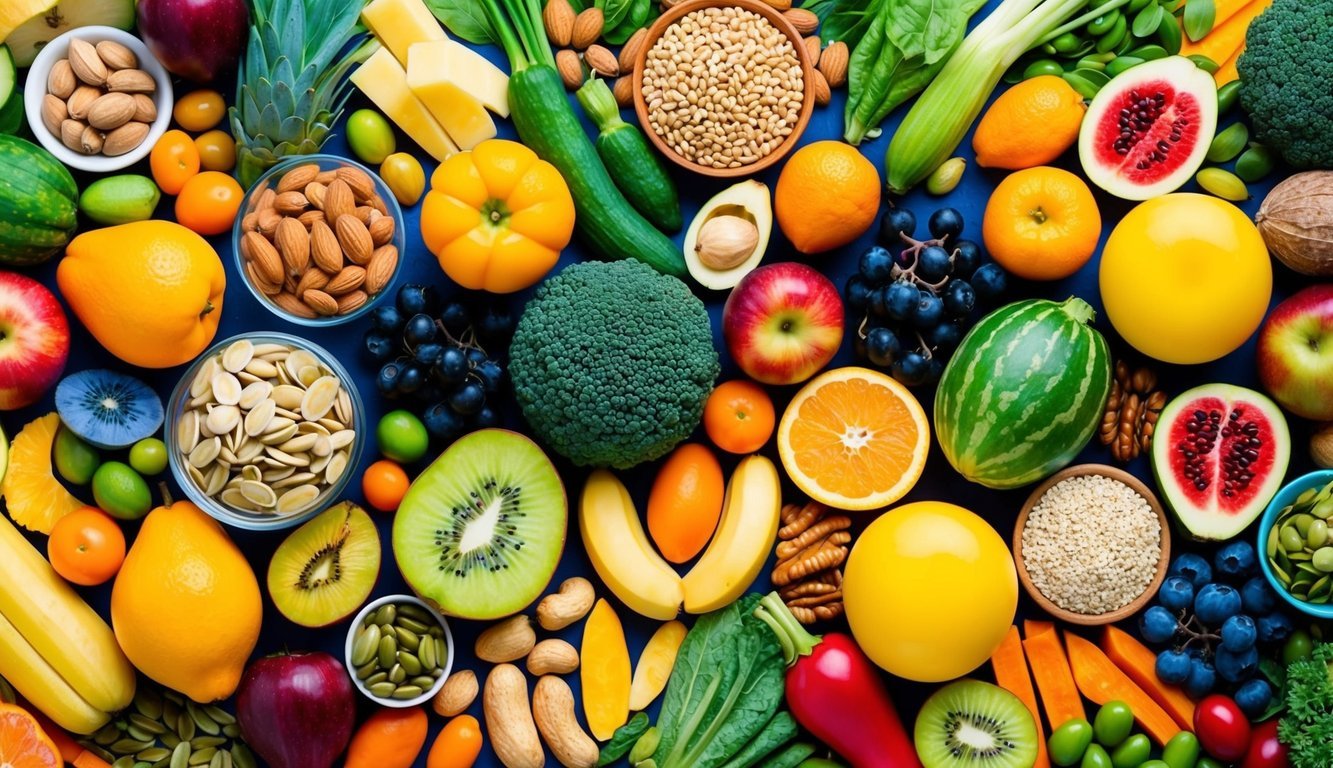
I’ve gathered some practical tips that can easily fit into any skincare routine.
Whether you’re a skincare novice or a seasoned enthusiast, these ideas can support your goal of achieving firmer, more supple skin.
Let’s dive into these simple yet effective ways to boost collagen and maintain that youthful glow.
1) Stay hydrated
Staying hydrated is one of the simplest ways to boost collagen production.
I’ve found that drinking enough water really helps keep my skin looking its best.
When my body is well-hydrated, my skin appears plumper and more radiant, reducing the appearance of fine lines. Boosting skin hydration naturally also supports overall skin elasticity, making it look healthier and more youthful.
In addition to drinking water, I try to eat water-rich foods like cucumbers and oranges to keep my skin moisturized from the inside out.
Hydrated skin is more elastic and can better support collagen fibers.
When my skin is well-hydrated, it feels softer and more plump.
I aim to drink at least eight glasses of water daily, but I adjust based on my activity level and climate.
If it’s dry outside, I make sure to up my water intake.
Using a humidifier in my home during winter also makes a big difference.
It helps combat dryness and keeps my skin from feeling tight or flaky.
Overall, water is a key player in my skincare routine.
The connection between hydration and collagen production is real, and I notice the benefits almost immediately.
So, I make it a priority to drink up and keep my skin happy.
2) Incorporate bone broth
I’ve found that adding bone broth to my diet is a simple way to support collagen production.
This nutrient-rich broth comes from simmering beef or chicken bones, which are naturally high in collagen and amino acids.
The amino acids glycine and proline in bone broth not only help boost collagen levels but also support skin health.
I enjoy using it as a flavorful base for soups or sipping it warm, especially in cooler months.
Including bone broth in my meals has given me an easy method to enhance my collagen intake.
It’s versatile and can be incorporated into various dishes, making it a staple in my kitchen.
If you’re looking to improve skin elasticity, bone broth is a great option that I highly recommend trying.
It’s not just nutritious; it also adds depth to my dishes.
3) Eat foods rich in vitamin C

Eating foods high in vitamin C is one of my favorite tips for boosting collagen production.
Vitamin C plays a crucial role in collagen synthesis, making it an essential part of my diet.
I love adding citrus fruits like oranges and grapefruits to my meals.
They are not only delicious but also packed with vitamin C, helping skin health.
Berries are another go-to for me.
Strawberries, blueberries, and raspberries come loaded with antioxidants that protect existing collagen.
Plus, they taste great in smoothies or as a snack.
I also include plenty of veggies, especially bell peppers and leafy greens.
They provide a variety of nutrients that support overall skin function.
Incorporating kiwi, papaya, and pineapple into my meals adds variety and boosts my vitamin C intake.
Each offers unique flavors and health benefits.
When I prioritize these vitamin C-rich foods, I can really feel the difference in my skin’s elasticity and appearance.
It’s a simple and tasty way to support collagen production in my body.
4) Use retinoid creams
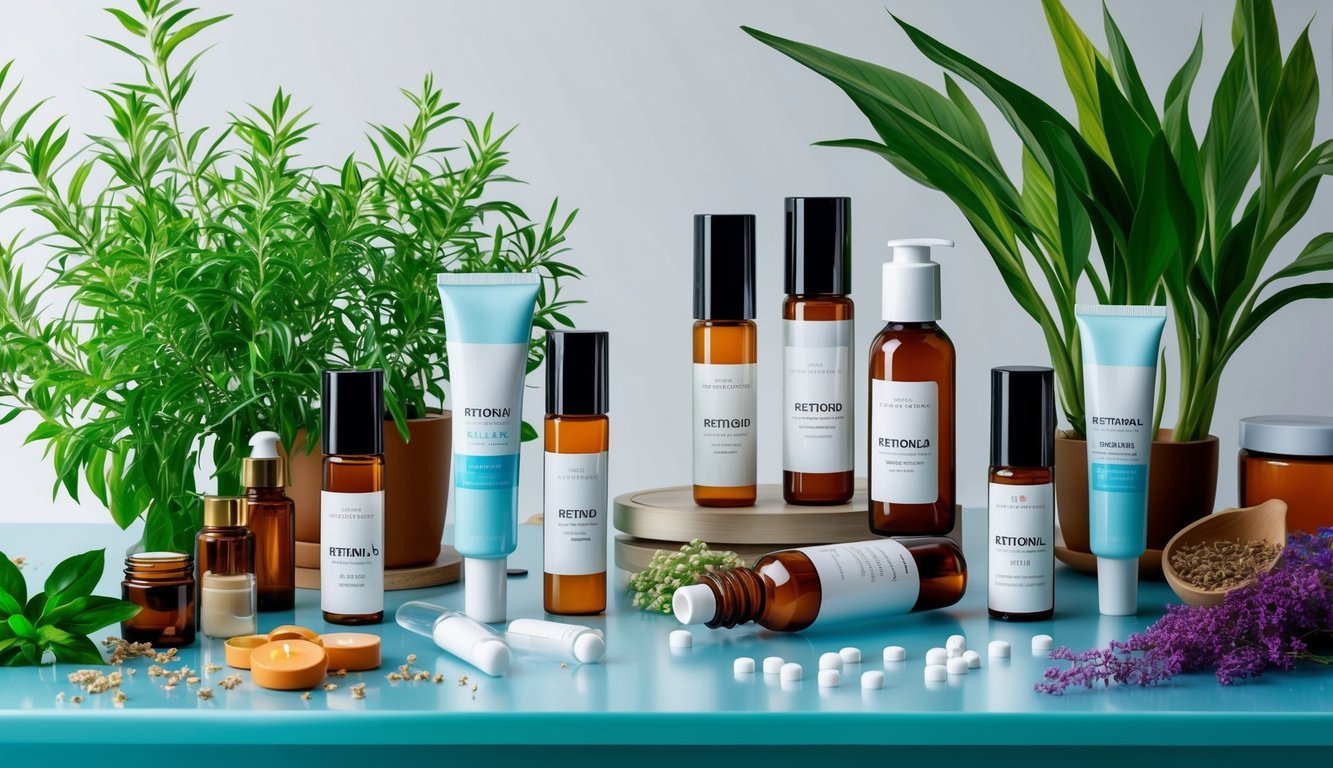
I’ve found that using retinoid creams can be a game changer for boosting collagen production.
Retinoids encourage cell turnover, which helps my skin look fresher and more youthful.
These creams can help stimulate collagen synthesis, making my skin feel firmer and more elastic.
I usually start with a lower concentration to see how my skin reacts.
It’s crucial to apply them at night since they can make my skin more sensitive to sunlight.
I’ve learned to never skip sunscreen during the day, especially when using retinoids, to protect my skin from UV damage.
I also find that patience is key.
It can take a few weeks to notice results, but the effort pays off over time.
Incorporating retinoids into my routine has definitely been worth it for enhancing my skin’s elasticity.
5) Try facial massage
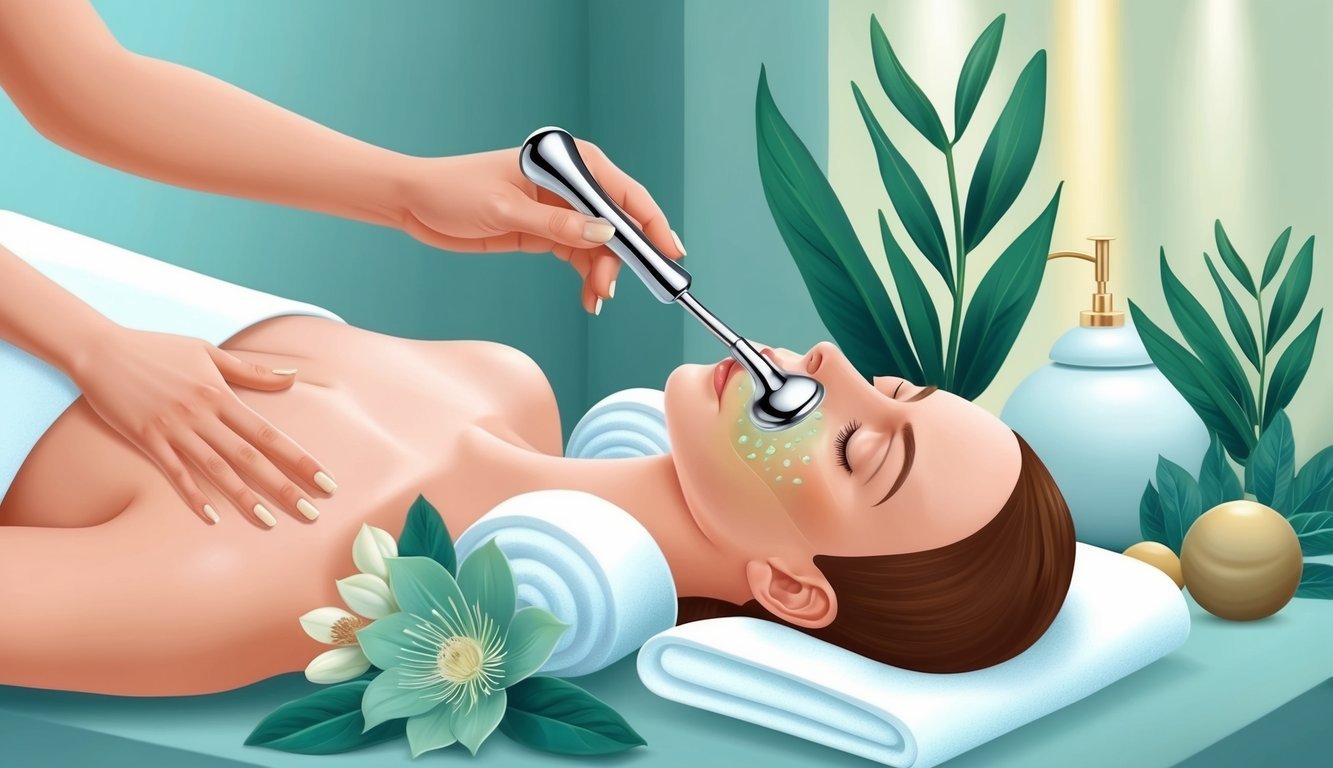
I’ve found that facial massage can be a simple yet effective way to boost collagen production.
By stimulating the facial muscles, it helps improve blood circulation and promotes skin elasticity.
Using a facial massage roller is one of my favorite methods.
I noticed that just a few minutes can significantly enhance blood flow to my skin.
Plus, it feels relaxing.
When I massage a collagen-boosting cream into my face, I really believe it helps the active ingredients absorb better.
This routine has made a difference in my skin’s texture and firmness.
It’s a great practice to incorporate into my skincare regimen.
I often spend a few minutes each morning giving my face some love.
These little habits can lead to noticeable improvements over time.
6) Add leafy greens to your diet
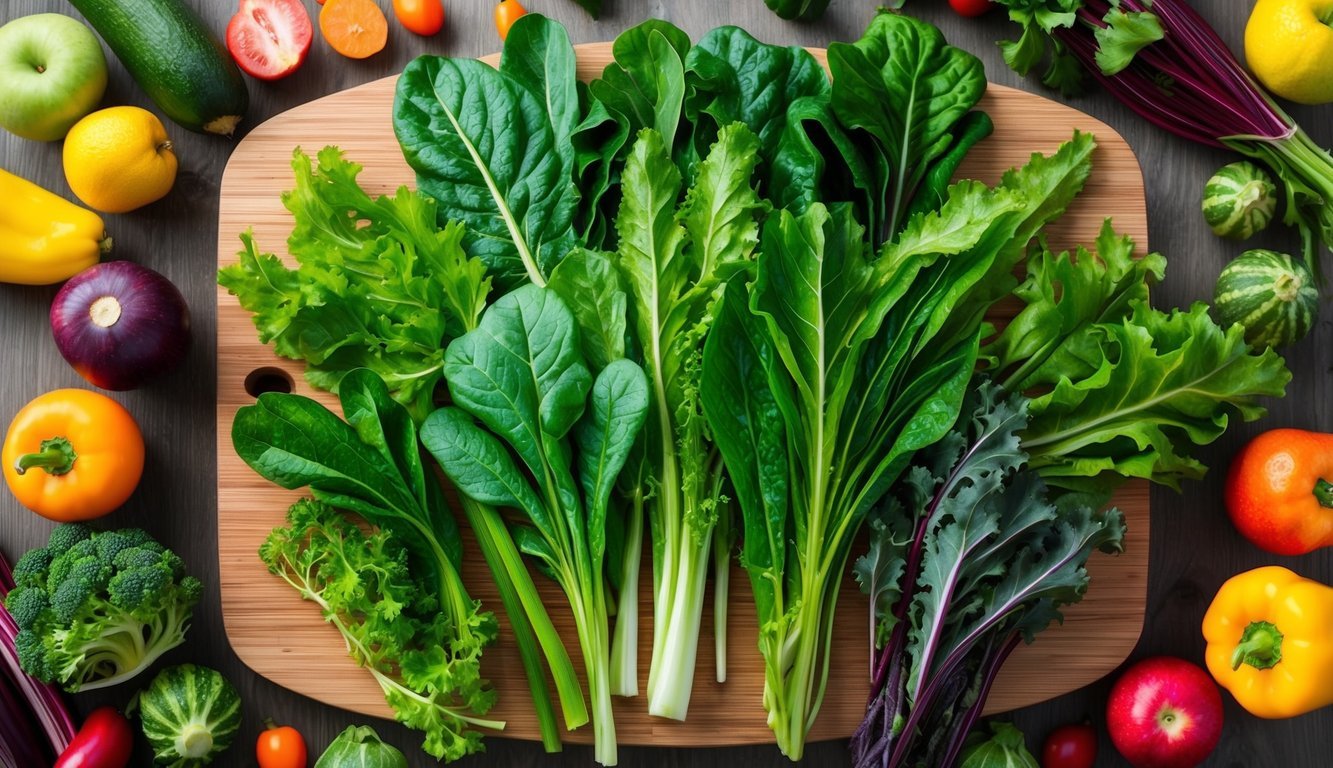
I can’t stress enough how beneficial leafy greens are for my skin.
They’re packed with vitamins and minerals that support collagen production and help maintain skin elasticity.
Eating a variety of greens like spinach, kale, and broccoli gives my body essential nutrients.
These foods are rich in vitamin C, which plays a crucial role in collagen synthesis.
The fiber in leafy greens also aids digestion, helping to keep my gut healthy.
A well-functioning digestive system can contribute to better skin health.
Incorporating greens into my meals is easy.
I enjoy adding them to smoothies, salads, or even sautéing them as a side dish.
Not only do they help boost collagen levels, but they also bring a fresh, vibrant taste to my meals.
Making greens a staple in my diet is one of the simplest changes I’ve made for healthier skin.
7) Avoid processed sugar

I’ve noticed that cutting back on processed sugar can really help my skin’s health.
Sugar can negatively impact collagen by attaching to its molecules, making them less effective.
This process can lead to premature aging.
In my experience, the more sugar I consume, the more noticeable my skin issues become.
Reducing sugary snacks and drinks helps me maintain better skin elasticity.
Sticking to whole foods can be a game changer.
I focus on natural sweeteners or fruits for my cravings.
This choice not only supports collagen production but also enhances my overall well-being.
8) Consider collagen supplements
I’ve been exploring collagen supplements as a way to boost skin health.
Many studies suggest that they can enhance skin elasticity and hydration.
When I take collagen supplements, I notice improvements in my skin’s texture.
Some evidence shows they may help reduce the appearance of wrinkles over time.
This is something I find appealing.
There are different types of collagen available.
Types I and III are popular for skin health, while Type II is often linked to joint support.
It’s worth considering which type might suit my needs.
Consistency seems to be key.
Many experts recommend taking collagen daily for the best results.
I’ve heard that it can take a few weeks to notice changes, so patience is important.
Always look for high-quality products.
I prefer ones backed by research and made from reliable sources.
This ensures I’m getting the benefits I want without any unnecessary additives.
Understanding Collagen and Skin Elasticity
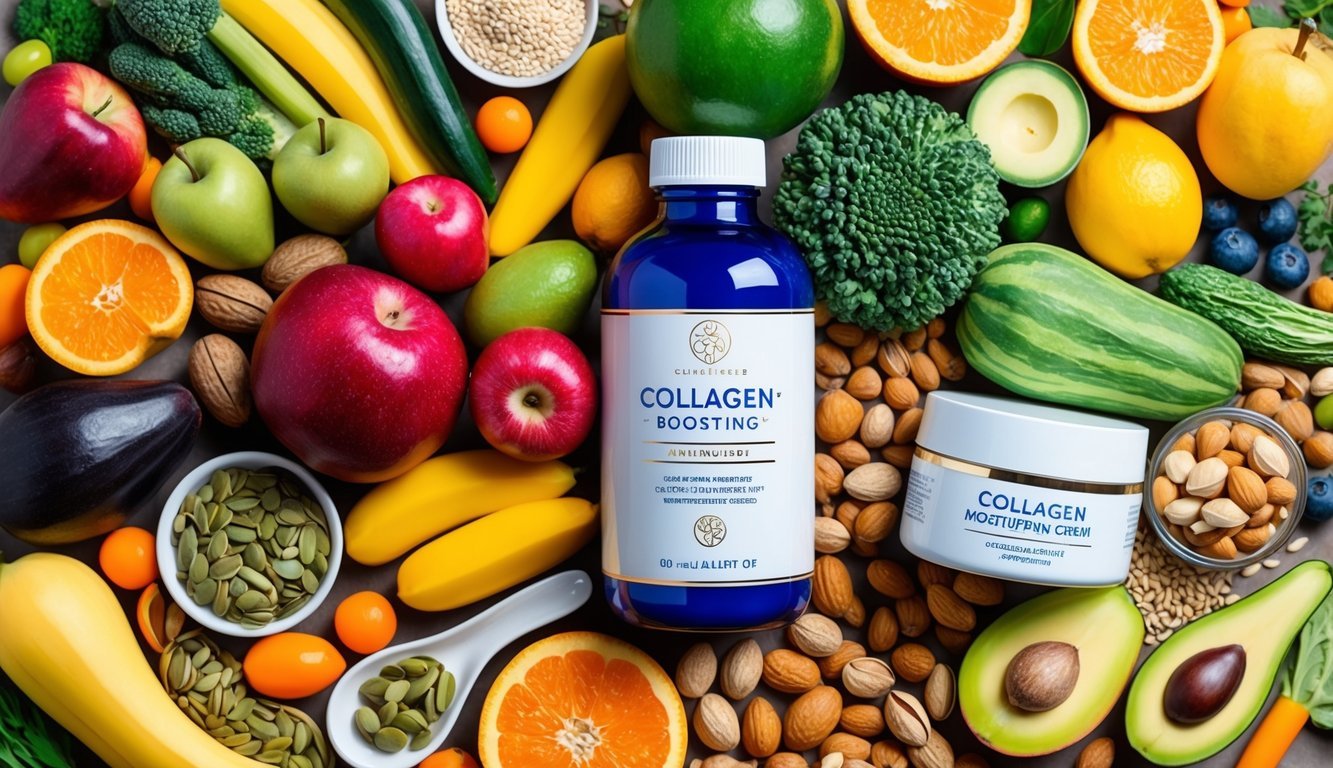
Collagen is a crucial protein that plays a significant role in maintaining skin health and elasticity.
It acts as the framework for our skin, providing structure and support.
Understanding how collagen functions and what affects its production can empower me to make better choices for my skin.
The Role of Collagen in Skin Health
Collagen is like a building block for my skin, making up about 75% of its structure.
This protein keeps my skin firm and smooth while also helping to retain moisture.
As I age, collagen production decreases, leading to visible signs of aging such as wrinkles and sagging skin.
By supplementing collagen or eating collagen-rich foods, I can support my skin’s elasticity.
Studies suggest that taking collagen supplements can improve skin hydration and reduce the appearance of wrinkles over time.
Engaging in practices that promote collagen production can help me maintain a youthful-looking complexion.
Factors Affecting Collagen Production
Several factors can impact how much collagen my body produces.
Age is the most obvious; as I get older, natural collagen synthesis slows down.
Additionally, lifestyle choices play a significant role.
Diet is crucial; consuming adequate protein and foods rich in vitamins C and E can support collagen synthesis.
Environmental factors, like sun exposure and smoking, can deplete collagen levels as well.
It’s beneficial for me to minimize sun exposure and avoid smoking to help maintain my skin’s collagen.
Lastly, stress can also hinder collagen production.
Incorporating stress-reducing practices can be just as important as what I eat and how I care for my skin.
Lifestyle Habits That Promote Collagen

Boosting collagen production can be greatly influenced by our daily habits.
I’ve found that focusing on what I eat and staying active have made a noticeable difference.
Here are some effective lifestyle choices I incorporate to support collagen levels.
Healthy Eating for Better Skin
A balanced diet is crucial for collagen production.
I prioritize foods rich in vitamin C because it plays a vital role in synthesizing collagen.
Here’s a simple list of vitamin C sources I love:
- Citrus fruits (like oranges and grapefruits)
- Red and green bell peppers
- Strawberries
- Kiwi
In addition to vitamin C, I also incorporate collagen-rich foods to enhance my skin health.
For example, beef bone broth contains high levels of type I collagen, which is essential for skin, hair, and nails.
I also enjoy leafy greens that contain antioxidants and protect skin firmness.
The Impact of Regular Exercise
Regular exercise keeps me fit and promotes collagen production.
When I work out, my body increases blood circulation.
This helps deliver nutrients to the skin.
High-intensity workouts can stimulate collagen synthesis in the muscles and skin.
I try to incorporate strength training into my routine a few times a week.
Staying active also reduces stress, which is linked to collagen breakdown.
So, whether it’s yoga, running, or lifting weights, getting my body moving has multiple benefits for my skin!

